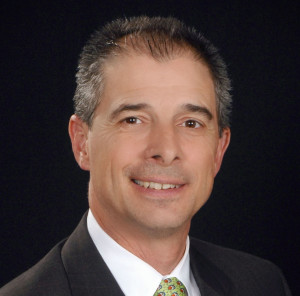 He picked us up at the airport. We had arrived in Dallas for volunteer duty, ready to travel all week with our son’s drum and bugle corps – Mesquite to Little Rock, Birmingham to Atlanta. Ten minutes out of the Dallas airport our long-haired chauffeur, driving the heavy-duty pickup asked us that dreaded question: “So, what do the two of you do for a living?”
He picked us up at the airport. We had arrived in Dallas for volunteer duty, ready to travel all week with our son’s drum and bugle corps – Mesquite to Little Rock, Birmingham to Atlanta. Ten minutes out of the Dallas airport our long-haired chauffeur, driving the heavy-duty pickup asked us that dreaded question: “So, what do the two of you do for a living?”
Here we go.
After hearing that we serve a church as co-pastors, there was a little pause in his breathing. You learn to detect that response after a lot of years of answering the preacher question. Then he said with confident candor, “Well, I’m gay. I was raised in a Pentecostal home. My parents and my church have rejected me.”
There you have it.
And then there was that other response we are also learning to recognize, when we tell someone about our thoughts on God, about our understanding of ministry, about our church. It’s something like shock and awe but without all the noise of war. It’s so deafening that you can almost hear the silent confusion: “You mean, there’s a church… like that?”
“Less and less, it seems, are we able to combat the noise of evangelical hypocrisy, the alienating judgment of fundamentalism.”
More and more, people have no idea. Less and less, it seems, are we able to combat the noise of evangelical hypocrisy, the alienating judgment of fundamentalism. The doors, for too many, just keep slamming shut. People keep walking away.
Then someone like our new friend finds us (it’s almost a miracle). They show up and realize there are churches whose windows are wide open. And that maybe that’s how churches are supposed to be.
Our new friend, a drum corps veteran who was working for next to nothing this summer because he has a degree in electrical engineering but a heart for kids and music, told me later in the week that in our first conversation he just decided, on the spot, to be honest. For our part, by virtue of our church’s reputation and our personal convictions, we’re so quickly labeled these days there’s really nothing else for us to be other than honest. I wouldn’t have it any other way – but I daresay we are the first Baptist ministers he has ever been able to call friends.
For a week, during every break, he had questions. About scripture and how it had been used, mostly against him; questions about church and culture, sin and judgment, heaven and hell, grace and goodness; questions about a God he already knew – and how we had managed to find the same God, too (even though we’ve spent all our lives in the Church).
Then he said something that will stay with me for a long, sad time. He said that in the course of his lifetime he had had to learn to look for signs – a defense mechanism for his emotional and spiritual safety. Finding a sign would protect him, shield him from more abuse. Particularly helpful was when the sign was blatantly obvious, like when someone showed up wearing a necklace outside their clothing, and hanging from the necklace was a cross.
“Sometimes after coming back again and again . . . they just walk away, leaving the Church because of the Church.”
When he saw a cross, the sign of the Christian Church, he knew to keep his distance.
As one who is still committed to the cross as a sign of commitment and conviction and self-giving love, I know my friend has gotten the wrong message. But for a lot of folks these days, that cross on your necklace might as well be a neon billboard declaring that the sermon being preached to everyone you meet is saying, “We don’t want people like you in the Church.” Yes, we might as well be saying it in neon. For far too many people, the message is that obvious.
And it’s not just the gay people. It’s many of the straight people who also grew up inside the Church, and some of the really smart and very thoughtful people, and a lot of the people who in one way or another don’t fit all the tidy rules about being “good” little boys and girls.
The truth is that all of those people, if you get to the heart of the matter, are just like you and me, but through some experience – or experiences – they’ve been wounded. All the preaching and teaching about a God who is just too small for our amazing and beautiful and wonderfully diverse world will do that to people. Finally, sometimes after coming back again and again, like a little, bruised puppy, returning with the cheery optimism that the next time will be different, they just walk away, leaving the Church because of the Church.
I understand walking away. I really do.
I just hope enough of them find that “miracle” – a church with open windows – and I hope they find it before it’s too late. The clock is ticking, and it’s not the people outside the Church who are in danger of becoming obsolete.
